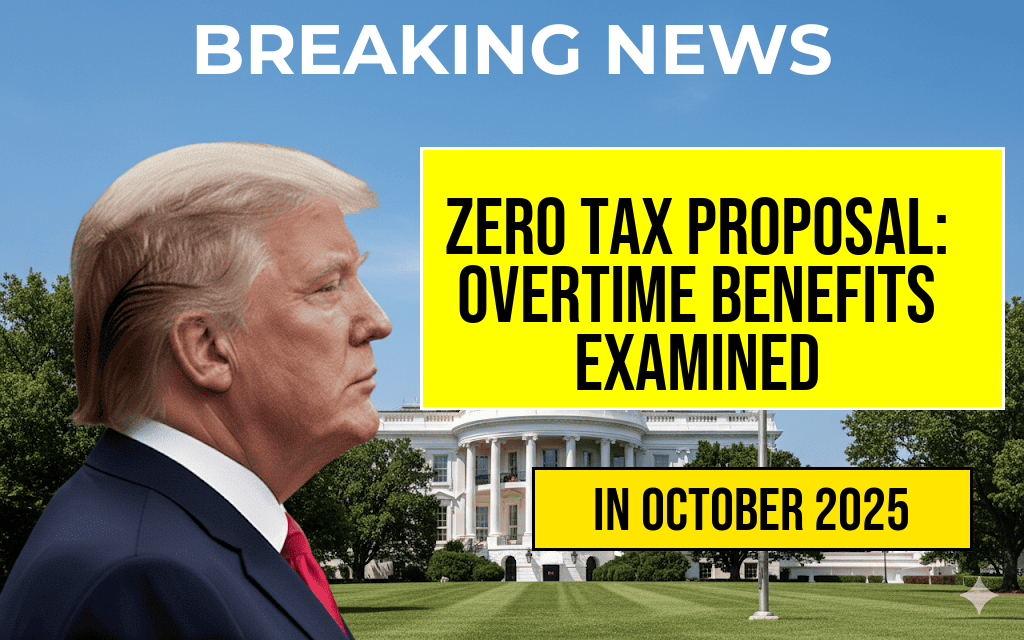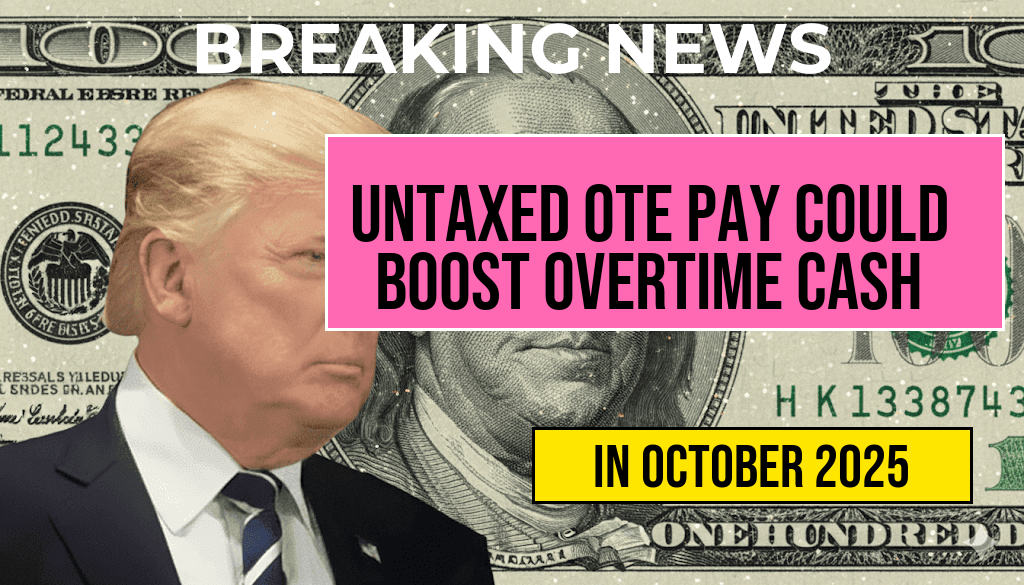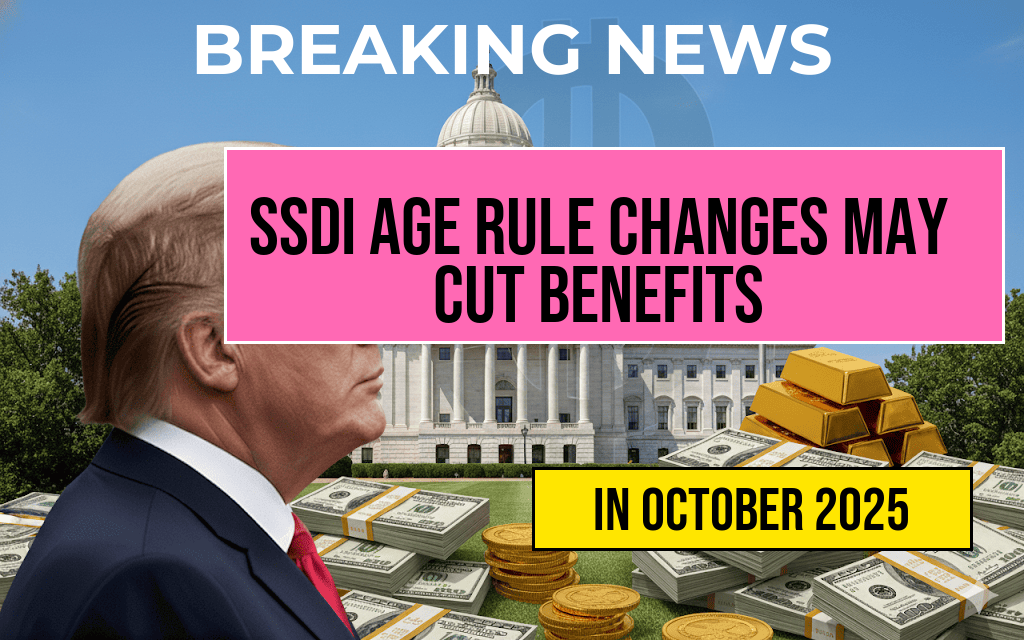A new proposal to eliminate taxes on overtime pay and tips is gaining traction among lawmakers, sparking discussions about its potential benefits for workers across the United States. Advocates argue that this early refund initiative could provide substantial financial relief for millions of hourly employees, particularly those in industries where overtime work is common, such as hospitality, healthcare, and construction. With the proposal gaining bipartisan support, stakeholders are examining who stands to gain the most from this policy change and how it could reshape the financial landscape for workers reliant on overtime and tip income.
Understanding the Proposal
The proposed legislation aims to exempt overtime wages and tips from federal income tax, creating an incentive for employers to offer more hours to their staff without the burden of additional tax liabilities. By allowing workers to retain more of their earnings, proponents believe that the policy could stimulate economic growth through increased consumer spending.
Key Components of the Proposal
- Tax Exemption: Overtime pay and tips would be exempt from federal income tax, potentially increasing take-home pay for workers.
- Bipartisan Support: The proposal has garnered interest from both sides of the political aisle, indicating a potential for passage.
- Economic Boost: Advocates argue that the increased disposable income could lead to greater consumer spending, benefiting local economies.
Who Stands to Gain?
The primary beneficiaries of this proposal are likely to be hourly wage earners who frequently work overtime or receive tips. According to the U.S. Bureau of Labor Statistics, approximately 30% of the American workforce is paid hourly, with many in industries that rely on overtime and tips.
Impact on Various Sectors
Different sectors may experience varying levels of benefit from the proposed tax changes:
- Hospitality Industry: Workers in restaurants and hotels often rely heavily on tips. The tax exemption could significantly enhance their take-home pay.
- Healthcare Workers: Nurses and aides frequently work overtime, especially in times of high demand, such as during a health crisis. This proposal could reward their extended hours.
- Construction Workers: With the demand for construction labor on the rise, workers in this sector could benefit from increased opportunities for overtime without the tax implications.
Potential Challenges and Criticisms
While the proposal has its supporters, it also faces scrutiny. Critics argue that the elimination of taxes on overtime and tips could lead to a reduction in tax revenue for federal and state governments, impacting public services. Additionally, some labor advocates express concern that employers might exploit the tax exemption by extending hours without increasing wages.
Economic Considerations
The potential loss of tax revenue raises questions about funding for essential public services, such as education and infrastructure. As the government relies on tax income to support a range of programs, lawmakers will need to consider how to balance the benefits of increased worker income against potential revenue losses.
The Path Forward
As discussions continue, the proposal will be subject to further debate in Congress. Stakeholders, including labor unions and business organizations, are likely to voice their opinions as the implications of the legislation become clearer. The potential for a pilot program to test the effects of the tax exemption in specific states or industries may also be on the table.
Conclusion
With bipartisan support growing, the proposal to eliminate taxes on overtime and tips could significantly alter the financial landscape for millions of American workers. By potentially increasing take-home pay and encouraging consumer spending, this legislation could provide much-needed relief in a challenging economic climate. However, careful consideration of the implications for tax revenue and workforce dynamics will be crucial as lawmakers move forward.
For further reading about the impacts of overtime pay and taxation, you can refer to resources from the Bureau of Labor Statistics and Forbes.
Frequently Asked Questions
What is the “Zero Tax on Overtime” proposal?
The “Zero Tax on Overtime” proposal aims to eliminate taxes on overtime earnings, allowing workers to keep more of their income during peak work periods. This initiative is particularly beneficial for employees who regularly earn overtime pay.
Who would benefit from this proposal?
This proposal primarily benefits workers in industries where overtime is common, such as hospitality and healthcare. Additionally, it may positively impact employees receiving tips, as they may experience increased take-home pay.
How could this proposal affect the economy?
By increasing disposable income for workers through the removal of overtime taxes, the proposal could stimulate consumer spending, potentially boosting local economies and encouraging business growth.
What are the potential drawbacks of the proposal?
Some critics argue that eliminating overtime taxes could lead to reduced government revenue, which may affect public services. Additionally, there could be concerns about how businesses might react to increased labor costs.
When is the expected implementation date for this proposal?
The timeline for implementation remains uncertain, as the proposal is still under discussion. Stakeholders are advocating for a swift resolution to maximize the benefits for workers as soon as possible.








